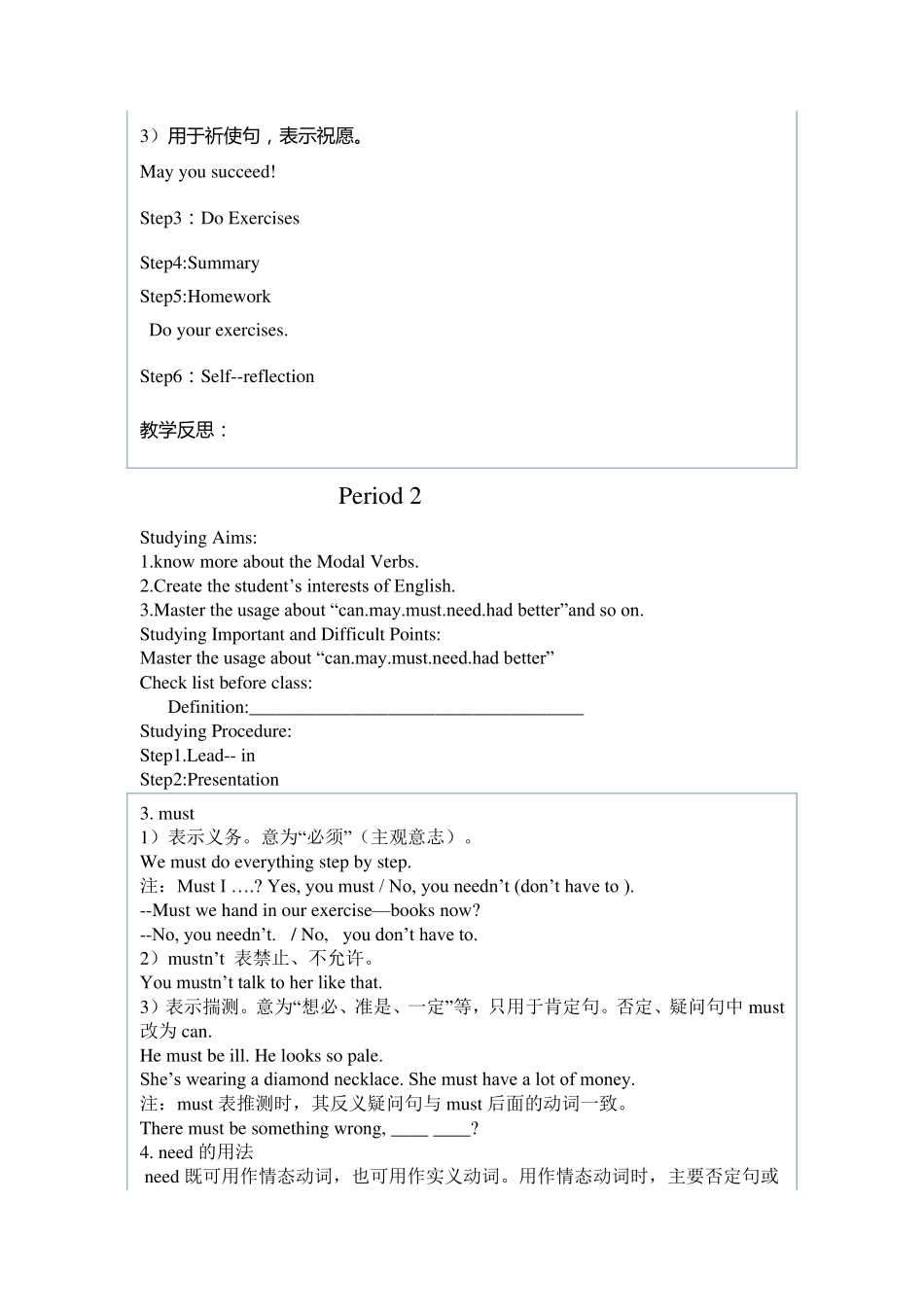情态动词(Modal Verbs) 共6 课时 Period 1 Studying Aims: 1. know more about the Modal Verbs. 2. Create the student’s interests of English. 3. Master the usage about “can.may.must.need.had better”and so on. Studying Important and Difficult Points: Master the usage about “can.may.must.need.had better” Check list before class: Definition:____________________________________ Studying Procedure: Step1.Lead-- in 1.教师提问:情态动词都有哪些? 2.师生之间相互问候,引出情态动词。 Step2:Presentation 一 .情 态 动 词 有 can (could), may (might), must, have to, shall (should, will (would), dare (dared), need (needed), ought to等 。 情 态 动 词 无人称和数的变化;不能单独使用,必须与其后的动 词 原形构成谓语。 二.情态动词的用法 1. can 用法 1)表示能力,与be able to 同义,但can 只用于现在时和过去时,be able to 可用于各种时态。 Two eyes can see more than one. 注:Can you … ? Yes, I can / No, I can’t. I’ll not be able to come this afternoon. 当表示“经过努力才得以做成功某事”时应用 be able to,不能用 Can。如: He was able to go to the party yesterday evening in spite of the heavy rain. 2). 表示允许、请求 用could 比 can 语气更加委婉客气,常用于could I /you … ..? 句型中,若表示同意时,用can 回答而不用could. Could I borrow the book ? No, you can’t. -----Can I go now? ----- Yes, you can. / No, you can’t. 此时可与 may互换。在疑问句中还可用 could,might 代替,不是过去式,只是语气更委婉,不能用于肯定句和答语中。 ---- Could I come to see you tomorrow? ---- Yes, you can. ( No, I’m afraid not. ) 3). 表示推测 “可能”( 惊 讶 、怀疑、不相信的态度),常用于否定句.疑问句和感叹句中。(can’t 表示一定不是) Can this be true? This can’t be done by him. How can this be true? It can’t be true. Can it be true? 4) 表示客观可能性( 客观原因形成的能力)。 They’v...


